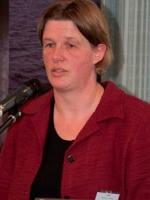Gemeentelijke woonlasten stijgen fors door hogere afvalstoffenbelasting

De gemeentelijke woonlasten stijgen dit jaar flink meer dan voorgaande jaren. Huurders betalen 5,4 procent meer, eigenaar-bewoners 4,3 procent. De stijging wordt veroorzaakt doordat de landelijke overheid de afvalstoffenbelasting met 139 procent verhoogt. Gemeenten rekenen die extra kostenpost door aan hun inwoners. Dit blijkt uit het rapport Kerngegevens Belastingen Grote Gemeenten 2019, dat is opgesteld door het Centrum voor Onderzoek van de Economie van de Lagere Overheden (COELO) van de Rijksuniversiteit Groningen.
COELO onderzocht voor dit jaarlijkse overzicht de tarieven van 37 grote gemeenten, waar in totaal 39 procent van de Nederlandse bevolking woont. Het volledige rapport, met cijfers over alle afzonderlijke grote gemeenten, is te vinden op www.coelo.nl.
Stijging afvalstoffenbelasting Rijk
Afvalverwerkers betalen afvalstoffenbelasting aan de rijksoverheid voor al het afval dat wordt verbrand of gestort en rekenen dat door aan gemeenten. Het rijk verhoogt deze afvalstoffenbelasting in 2019 met 139 procent. Gemeenten maken hierdoor 3,5 tot 4,0 procent meer kosten. Het vergt tijd om maatregelen te nemen die hergebruik stimuleren zodat er op termijn minder afval verbrand hoeft te worden. Tot die tijd moeten gemeenten de extra kosten dekken. Dit doen zij onder meer door de afvalstoffenheffing te verhogen.
Woonlasten huurders
Huishoudens in een huurwoning betalen afvalstoffenheffing en in sommige gemeenten rioolheffing. Zij betalen in 2019 gemiddeld 18 euro meer (5,4 procent). Zonder de stijging van de afvalstoffenbelasting van het rijk was dit veel lager geweest (2,0 tot 2,5 procent, dat is 7 á 8 euro). Het goedkoopst is Nijmegen (40 euro) en het duurst Zaanstad (571 euro). De lasten stijgen voor huurders het sterkst in Haarlem (18 procent, ofwel 59 euro) en dalen het sterkst in Assen (4,4 procent, 17 euro).
Woonlasten eigenaar-bewoners
De gemeentelijke woonlasten voor meerpersoonshuishoudens die hun woning bezitten (ozb, rioolheffing en afvalstoffenheffing) stijgen gemiddeld met 29 euro (4,3 procent) tot 702 euro per jaar. Zonder de verhoging van de afvalstoffenbelasting door het rijk zouden deze huishoudens iets meer dan 690 euro kwijt zijn (stijging van 2,6 tot 2,8 procent). Voor woningeigenaren in ’s-Gravenhage zijn de lasten het laagst (563 euro); in Enschede zijn ze het hoogst (856 euro). Nijmegen verlaagt de lasten voor deze groep het meest (met 2,2 procent ofwel 16 euro). Amsterdam verhoogt ze het sterkst (met 11,3 procent, ofwel 66 euro).
Afvalstoffenheffing stijgt 6,1 procent
Met de afvalstoffenheffing wordt de afvalinzameling en -verwerking bekostigd. Een meerpersoonshuishouden betaalt gemiddeld 289 euro aan afvalstoffenheffing, 6,1 procent meer dan vorig jaar. Zonder de verhoging van de afvalstoffenbelasting door het rijk zou deze stijging 2,1 tot 2,6 procent kleiner zijn geweest. In Assen daalt de afvalstoffenheffing met 4,6 procent, in Haarlem zijn huishoudens 18,2 procent meer kwijt. Huishoudens in Nijmegen betalen het minst (40 euro) omdat een groot deel van de kosten van afvalinzameling en verwerking wordt betaald uit de ozb. In Haarlem betalen huishoudens het meest (383 euro).
Stijging rioolheffing lager dan inflatie
Gemeenten kunnen kiezen of zij een aanslag voor de rioolheffing sturen naar woningeigenaren, huurders of beiden. Huurders betalen gemiddeld 58 euro voor de rioolheffing, 1,7 procent meer dan in 2018. In 13 grote gemeenten (34 procent) betalen huurders geen rioolheffing. In de gemeenten waar huurders wel rioolheffing betalen varieert het tarief voor zowel één- als meerpersoonshuishoudens van 28 euro in Oss tot 280 euro in Zaanstad.
Eigenaar-bewoners betalen in Zwolle het minst voor de rioolheffing (103 euro), in Zaanstad het meest (280 euro). Gemiddeld betalen zij 169 euro, 2,0 procent meer dan vorig jaar. Zowel de stijging voor huurders als voor eigenaren blijft daarmee onder de verwachte inflatie (2,4 procent).
Stijging ozb 3,7 procent
Huurders betalen geen ozb aan de gemeente, huiseigenaren wel: in 2019 gemiddeld 244 euro. Dat is 3,7 procent meer dan vorig jaar. De stijging loopt uiteen van een daling met 1,9 procent in Westland tot een stijging met 23 procent in Eindhoven. In ’s-Gravenhage betalen huishoudens het minst (gemiddeld 131 euro), in Nijmegen het meest (529 euro).
Meer informatie
Contact: dr. Corine Hoeben
________________________________________________
> Meer nieuws van de Faculteit Economie en Bedrijfskunde
> FEB-experts in de media


| Laatst gewijzigd: | 29 februari 2024 10:02 |
Meer nieuws
-
17 juli 2024
Veni-beurzen voor tien onderzoekers
Aan tien onderzoekers van de Rijksuniversiteit Groningen en het UMCG is een Veni-beurs van maximaal 320.000 euro toegekend. De Veni-beurzen worden jaarlijks toegekend door de Nederlandse Organisatie voor Wetenschappelijk onderzoek (NWO) en zijn...
-
08 juli 2024
Nieuwe samenwerking UGBS en Faculteit Ruimtelijke Wetenschappen: opleidingen voor professionals
Het samenbrengen van kennis en ervaring van beide partners levert nieuwe opleidingsmogelijkheden voor werkenden in uiteenlopende organisaties.
-
02 juli 2024
Roeping of noodzakelijk kwaad?
Het is belangrijk om te weten hoe werknemers hun baan zien, ontdekte Milena Nikolova. De hoogleraar Economics of Well-being onderscheidt drie verschillende arbeidsmotivaties.
